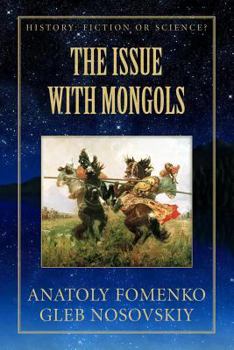The Issue with Mongols
The small nomad tribe of Mongols did not know till XX century how great a power they were once. Nor did Mongols know who Great Ghengis Khan was and how he has conquered Eurasia, Russia, China, the whole works. Back in 1879 Mr. Prejevalsky, colonel of Russian cavalry made two major discoveries Gobi Desert, i.e. in Mongolia: for the first, a small wild undomesticated horse, for the second, a case of collective amnesia of the Mongols people. who ignored how great a power they were once.Nobody in the nomad tribe called Mongols couldn't either read, no write and did not know till colonel told them so, how great a world power they were once. Nor did Mongols know who the character Great Ghengis Khan was and how he has conquered Eurasia, Russia, China, the whole works. Actually, in old Russian language horde means army. Consequently, the Mongolian Horde was merely the ancient Russian army. According to the official version of history, Russia remained under the political and military yoke of the Mongols for many centuries on end. The term "Mongol" is usually assumed to have always meant the same thing - however, this turns out to be incorrect; the modern interpretation is of a relatively recent origin. Bear in mind that Mongolia didn't exist as an independent state until the revolution of 1917 in Russia The word "Mongol" comes from Russian 'mnogo' simply meaning 'a lot, "numerous" or "Great One" - its association with the nomadic tribes hailing from the steppes north of China is a later invention. But why did it have to be invented?The reason is simple: the actual "Mongol conquerors of Russia" never existed. The yoke theory was created by the court German historians of the new Russian dynasty, the Romanovs. The Mongol yoke theory has served the end of justifying the Romanovs' claims for the throne and demonizing their longtime adversaries - the Horde, or the professional Russian army, which remained fiercely loyal to the old Russian dynasty, deposed and finally destroyed by the Romanovs as a result of a conspiracy. The savage invaders and torturers of the Russian land that we read about in history textbooks were the protectors of the state in reality - and ethnic Slavs for the most part. Small wonder historians still cannot find a single trace of the mythical Mongol capital - no such capital ever existed anywhere near the Gobi Desert.
Format:Paperback
Language:English
ISBN:1977875580
ISBN13:9781977875587
Release Date:October 2017
Publisher:Createspace Independent Publishing Platform
Length:328 Pages
Weight:0.97 lbs.
Dimensions:0.7" x 6.0" x 9.0"
Related Subjects
HistoryCustomer Reviews
0 rating





